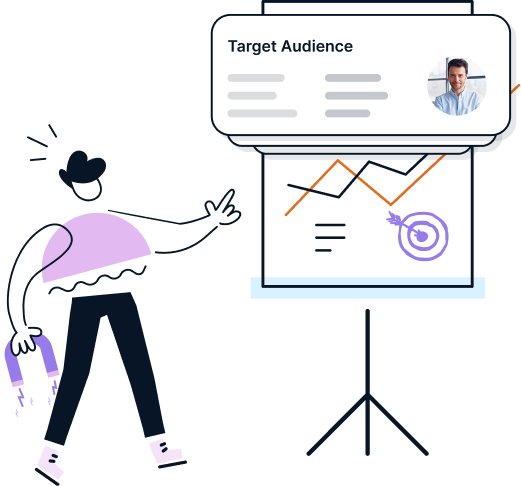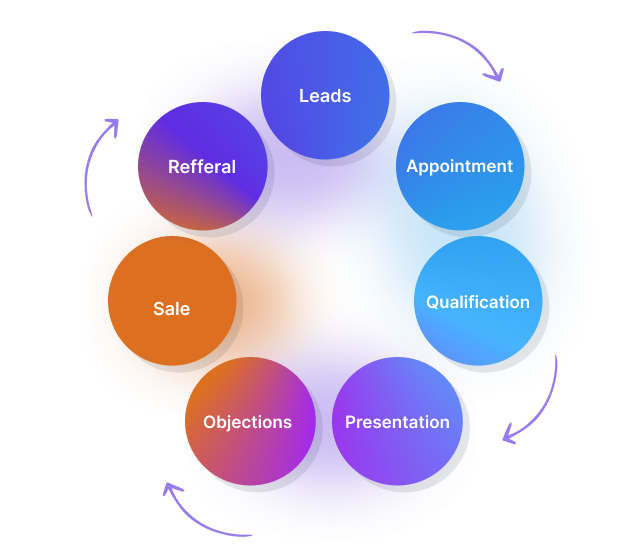Digital Marketing Transformation
Learn what a digital transformation agency does and how it can help your business.



What is a Digital Transformation agency?
Webbuzz is a digital transformation agency that specialises in marketing. We help companies leverage digital tools and techniques to reimagine their marketing and sales functions.
We also go beyond implementation and integration to ensure you develop the mindset and the ‘muscle memory’ required to harness the full power of your new capability.
It is important to understand the foundational principles that underpin much of the work we do. There are four recognised pillars of digital transformation:
IT Uplift
Modernise your existing IT systems with flexible platforms and an ecosystem of effective tools. You reduce your costs while improving your team’s capabilities, leading to happier and more fulfilled clients
Digitising Operations
Optimise your existing business practices to enhance efficiency and reduce costs. You save time and money, allowing you to create more sales and marketing campaigns.
New Ventures
Digital transformation opens new avenues for your company, including the implementation of innovative models and exciting products. Your company grows as you gain access to different markets.
Digital Marketing
Marketing is the lifeblood of an SME. Digital marketing transformation involves leveraging new tools for customer acquisition and enhancing your brand’s value. You acquire more clients and achieve a better return on your marketing investment.
Webbuzz is a specialist in the Digital Marketing pillar.
With respect to the other three digital transformation pillars, we can also add value by:
- Providing consulting advice
- Coordinating the overall project management
- Collaborating with other stakeholders such, as I.T companies
- Collaborating with other specialist agencies, such as product designers
Unlock the full potential of your company, sooner

Learn what a digital transformation agency does and how it can help your business.
What makes Webbuzz the digital transformation agency of choice?
We partner with our clients to undertake a marketing transformation journey that reimagines how they do business. Implementing new tech and ideas is the first step. But we take things further by helping clients execute the strategy that ensures the digital transformation delivers everything an organisation needs from both the sales and marketing perspectives.
Our service is for any company that’s ready to start a digital marketing transformation journey. If you’ve never fully leveraged the power of the digital channel in your marketing, you might be ready to work with an agency like us.
If you’ve tried digital marketing and failed (regardless of all the agencies you’ve worked with, or all the people you’ve hired), then there’s probably a reason. Usually that is a sign that the strategy is wrong, and that it’s time for a complete transformation.
With Webbuzz, you get a digital marketing agency that unleashes the full potential of the digital world using an integrated program of transformation change.
Our marketing transformation services include:
- Developing a robust digital strategy.
- Finding new and novel ways to tell your brand’s story.
- Creating marketing funnels that lead to more sales.
- Defining your customer’s journey.
- Implementing the technology stack that facilitates transformation.
- Establishing a reliable data set for data analytics
- Innovating inbound marketing and digital advertising campaigns.
- Automating your marketing efforts to save time.
- Ensuring your company reaches the top of search engines such as Google.
- Enhancing your presence on social media platforms.
- Improving your conversion rate optimisation.
- Creating the written, video, and webinar content you need to appeal to clients.
- Building lead magnets that make qualified prospects want to talk to you.
What does 'the Bot' say?
Get the latest on Digital Marketing Transformation from our A.I avatar.
To demonstrate what’s possible with new and emerging technology, Webbuzz produced this video with 100% by Artificial Intelligence (A.I). Contact us to learn how we did it.
The business case for leading Digital Transformation with marketing
You know the “what.”
Now you want to know the “why.” Why should your company embark on a journey of digital transformation?
And why is it best for small to medium sized enterprises (SMEs) to lead the transformation with sales and marketing?
Sales and marketing is all about knowing who your customers are and what they (really) want from your business.
It’s often easier to lead the transformation with a focus on these two areas (rather than say, operations) because:
- There is more customer data already available
- It’s easier to test and measure
- It is not as intrusive to the customer experience
- The upside to the business becomes evident sooner
- Early learnings can then be applied to other areas of the business

The learnings a company takes from a digital marketing transformation may deepen its understanding of the target market. This can be hugely beneficial for product development, and may help you to conceive and design new products that better serve your existing customers.
In some respects, digital transformation is for any company that wants to learn more about its customers.
If you have a great product and don’t understand why it’s not selling, then marketing and sales is a logical place to start. If your business wishes to anticipate customer actions and stay ahead of its competition in an ever-evolving landscape, you’re ready for the transformation journey.
Ultimately, digital transformation will change how you sell and market your product or services.
There are four key reasons why companies choose Webbuzz to enable this change…

Unlock Hyper-Growth Opportunities

Hyper-growth isn’t some fancy term we’ve coined to get more people to buy from us. Over the years we have noticed those clients who most fully embrace transformational change, experience the strongest and fastest growth. Often such outsized growth is driven by scalable lead generation, access to new segments and channels, and higher conversion rates.
The rapid sales growth that comes with digital transformation is often systemic and should always be sustainable.
Access Epic Efficiencies

Why waste time with laborious manual work? Marketing automation can handle so many of the repetitive and predictable tasks, allowing you to create a more efficient marketing and sales team.
Through digital transformation, it’s possible to unlock epic efficiencies such as lower cost per acquisition (CPA), better customer retention, and improved productivity.
De-Risk the Transformation Process

Digital transformation is a significant undertaking for most companies. It’s understandable that many leadership teams feel anxious about the process, and this explains why organisations sometimes delay the project for months or even years.
Webbuzz has developed a proven process that de-risks the transformation process. This is backed up by our ethical culture and passion for excellence.
The Risks of Not Taking Action

A staggering 81% of people check online before buying. The average person spends 79 days collecting information before committing to a major purchase.
If you don’t take action to enhance your digital presence and develop innovative new techniques, you risk falling behind your competitors. If you’re not transforming, you’re going backwards.
What our clients are saying



FAQs
Is digital marketing a digital transformation?
Digital transformation is a comprehensive change process that impacts the entire organisation and its ecosystem.
It involves the adoption and implementation of new digital technologies and processes to improve the way a business operates and interacts with customers, employees, partners, and suppliers.
The goal of digital transformation is to enhance customer experiences, streamline business processes, increase operational efficiency, and drive innovation.
Digital marketing, on the other hand, is a subset of digital transformation that focuses specifically on marketing efforts.
It involves using digital channels such as search engines, social media, email, and websites to reach and engage with customers.
Digital marketing enables businesses to connect with customers in new and more effective ways, deliver personalised experiences, and gather data and insights to continuously improve their marketing efforts.
In summary, digital marketing is an important aspect of digital transformation, but it is not the same as digital transformation.
Digital transformation encompasses a broader range of changes and initiatives, while digital marketing is more focused on a specific business function.
What are the stages of digital marketing transformation?
The stages of digital marketing transformation typically include the following:
- Assessment: In this stage, companies evaluate their current digital marketing efforts and assess the effectiveness of their existing strategies. This includes analysing website traffic, social media engagement, and conversion rates. Based on this analysis, organisations can identify areas for improvement and prioritise their digital marketing goals.
- Strategy Development: Based on the assessment, companies develop a comprehensive digital marketing strategy that aligns with their business goals. This includes determining target audiences, selecting channels to reach those audiences, and defining key performance indicators (KPIs) to measure success.
- Technology Implementation: In this stage, organisations choose and implement the technology and tools needed to support their digital marketing efforts. This may include tools for data analysis, content management, social media management, and email marketing.
- Data-Driven Decision Making: Data is collected and analysed to make informed decisions about digital marketing initiatives. This data can come from a variety of sources, including website analytics, customer surveys, and social media metrics. Using this data, companies can optimise their digital marketing efforts and measure the success of their strategies.
- Customer-Centric Approach: Companies focus on the customer journey and prioritise providing a personalised experience for each customer. This involves understanding customer needs and preferences, and using that information to create targeted, relevant content and offers.
- Agile Implementation: Digital marketing efforts are continuously tested, iterated, and improved based on data and customer feedback. This approach allows organisations to quickly respond to changes in the market and customer needs, and to make adjustments to their strategies as needed.
- Measurement and Optimisation: Success is measured using KPIs defined in the strategy development stage, and data is analysed to make optimisations and improve results. This may involve adjusting targeting, changing content, or improving the customer experience.
- Continuous Evolution: Finally, companies stay up-to-date with the latest digital marketing trends and technologies and continuously evolve their strategies to stay ahead of the competition. This requires ongoing investment in technology, data analysis, and human resources, as well as a commitment to continuous improvement.









